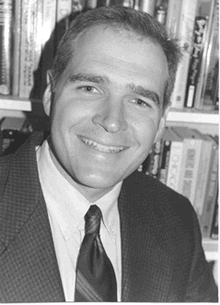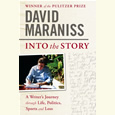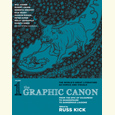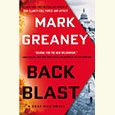Not Far from the Tree
Cash biographer Michael Streissguth follows Rosanne as she records a cathartic album
In 1973, Johnny Cash gave his daughter Rosanne a list of 100 songs, many from the Southern tradition, that he thought a young musician was obligated to know. Always Been There tells the inside story of the album that, more than thirty-five years later, she finally made from “the list.” Based on interviews conducted in the studio, at home in New York City, and on tour in Europe, Always Been There chronicles the both the making of an iconic album and the remarkable career of one of popular music’s most gifted singer-songwriters.
 Michael Streissguth is the author of Johnny Cash: The Biography and five other books. His work has appeared in Mojo, the Journal of Country Music, and many other publications. A professor in the Department of Communication and Film Studies of Le Moyne College in Syracuse, New York, he recently took some time to answer questions from Chapter 16 about writing Always Been Thereand documenting the process of recording The List.
Michael Streissguth is the author of Johnny Cash: The Biography and five other books. His work has appeared in Mojo, the Journal of Country Music, and many other publications. A professor in the Department of Communication and Film Studies of Le Moyne College in Syracuse, New York, he recently took some time to answer questions from Chapter 16 about writing Always Been Thereand documenting the process of recording The List.
Chapter 16: When working with Rosanne, did you find your work as a biographer of her father to be a benefit or a burden? How so?
Streissguth: I feared it would be a burden because Rosanne has worked so hard over the years to establish herself outside her father’s shadow. Why would she want to cooperate with somebody who’d done so much writing about her father? Would she think that I’d be using her as a vehicle to discuss her father’s career and myth? I still don’t know why she agreed to cooperate, but I’m pleased that she did.
As it turned out it wasn’t a burden. Rather, I think I gained her trust through my interviewing her for the Johnny Cash books, which made the process easier.
Chapter 16: In the book, you admit to being self-conscious about documenting the recording process. What methods did you use to get what you needed from the artists without infringing upon the creative process?
Streissguth: I’m not sure that I didn’t infringe on the creative process. Rosanne’s husband and producer John Levanthal was skeptical of my presence, fearing that my writing would dispel for readers some of the glamour of record making. In the end, I tried to melt into the background and observe the process as it unfolded, hoping that the artists would forget I was present. Rosanne seemed unaffected: in full view of this writer, she negotiated frankly with Leventhal, struggled with her vocals, and dealt with the emotions that each song pricked.
Chapter 16: Typically, the document of a recording, whether in a book or film, doesn’t take place during the recording process. Like your work on “Live from Folsom Prison,” they are often retrospects that come after an album achieves a high-water mark or landmark status. Granted, The List isn’t a typical record, but what’s it like to document a recording in anticipation of its importance rather than having the hindsight advantage of certainty?
Streissguth: Certainly, The List has intrinsic appeal. But it was not so much the record that I saw as important. The record was kind of like Hitchcock’s McGuffin.
The process seemed to me to be important, with the potential to reveal interesting perspectives on an enigmatic figure in popular music.
Chapter 16: If you had to choose one of Rosanne’s songs to serve as a soundtrack to this book, which would it be and why?
Streissguth: I suppose it would be “Miss the Mississippi and You.” It’s associated with Jimmie Rodgers, one of the grandfathers of country music. Rosanne is no doubt a grandchild. And there’s a melancholy in the song reminiscent of the blue tone that threads through much of Rosanne’s work.
Chapter 16: Throughout the book, a great deal of time is spent looking for the actual list, or wondering what’s become of the list. In the end the search is unresolved, and we’re left with the idea that “the spirit of the list” is what matters. But I have to ask: Did Rosanne ever find the actual list?
Streissguth: Not while I was around her. She may still be looking.





